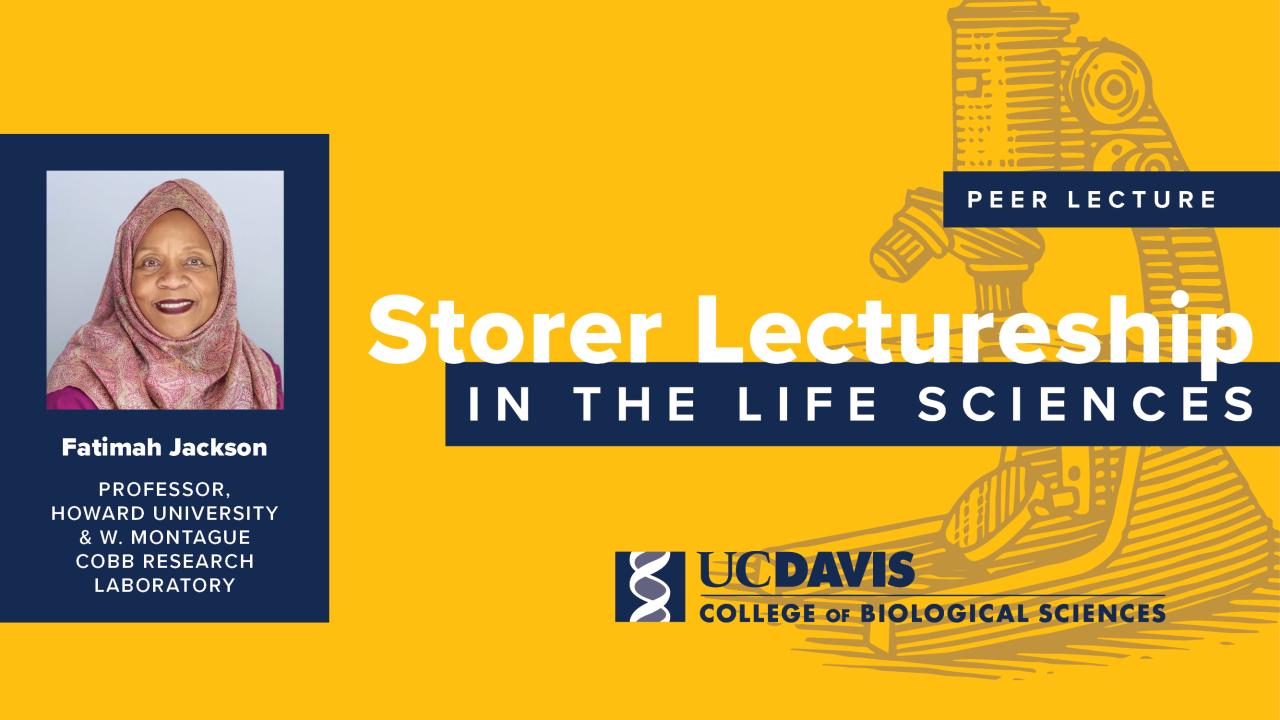
Event Date
Fatimah Jackson, Professor, Howard University & Director, W. Montague Cobb Research Laboratory
Fatimah Jackson received her Ph.D., M.A., and B.A. (cum laude with Distinction in all Subjects) from Cornell University. Her research is focused on: 1.) Human-plant coevolution, particularly the influence of phytochemicals on human metabolic effects and evolutionary processes and 2.) Population substructure in peoples of African descent, developing Ethnogenetic Layering as a computational tool to identify human microethnic groups and differential expressions of health disparities. Dr. Jackson's research has been funded by: USAID, Ford Foundation, Huber Foundation, Rockefeller Foundation, NIH (NIMHD and NHGRI), Wenner-Gren Foundation, and EPA. Dr. Jackson has taught at Cornell University, University of California - Berkeley, University of Florida, University of Maryland - College Park (where she is Distinguished Scholar Teacher and Professor Emerita), University of North Carolina - Chapel Hill and now at Howard University.
Computational Geospatial Approaches to Reconstruct the Historic Internal Migrations of Africans during the Millennia of Enslavement
Predicting the origins of African-descended peoples of the Atlantic Diaspora is an important task which provides insights of biomedical significance, including precision medicine. The application of machine learning to biological and historical databases has increased. We find that machine learning models can accurately identify the African empires and kingdoms (AEKs) involved in the procurement, kidnapping, transport, and delivery of captive Africans for enslavement within and outside of Africa. Supervised and unsupervised machine learning models can also identify the ethno-regional sources of enslaved Africans and predict the routes used to take them from their homelands. Our analysis is grounded in the paradigm of the Millennia of Enslavement (700 CE to 1900 CE) which links all the major intra-African slave trades (trans-Atlantic, trans-Saharan, Red Sea, and Indian Ocean trades) during this timeframe and identify the diverse African origins of their descendants in the various Diasporas.
Location - Hybrid Format:
- In person: Activities and Recreation Center (ARC) Ballroom B
- Virtual: Zoom information will be provided to registrants
Registration:
- This event is free to attend. Registration is required for Zoom access.
Agenda:
- 4:00pm - doors open
- 4:10pm - introductory remarks
- 4:15pm - talk begins
About the Series:
The Tracy and Ruth Storer Lectureship in the Life Sciences is the most prestigious of the endowed seminars at UC Davis. Established in 1960, the Storer Endowment makes it is possible to invite distinguished biological scientists to campus to present two lectures and meet with faculty members and graduate students in their field of interest. The series is presented by the UC Davis College of Biological Sciences.